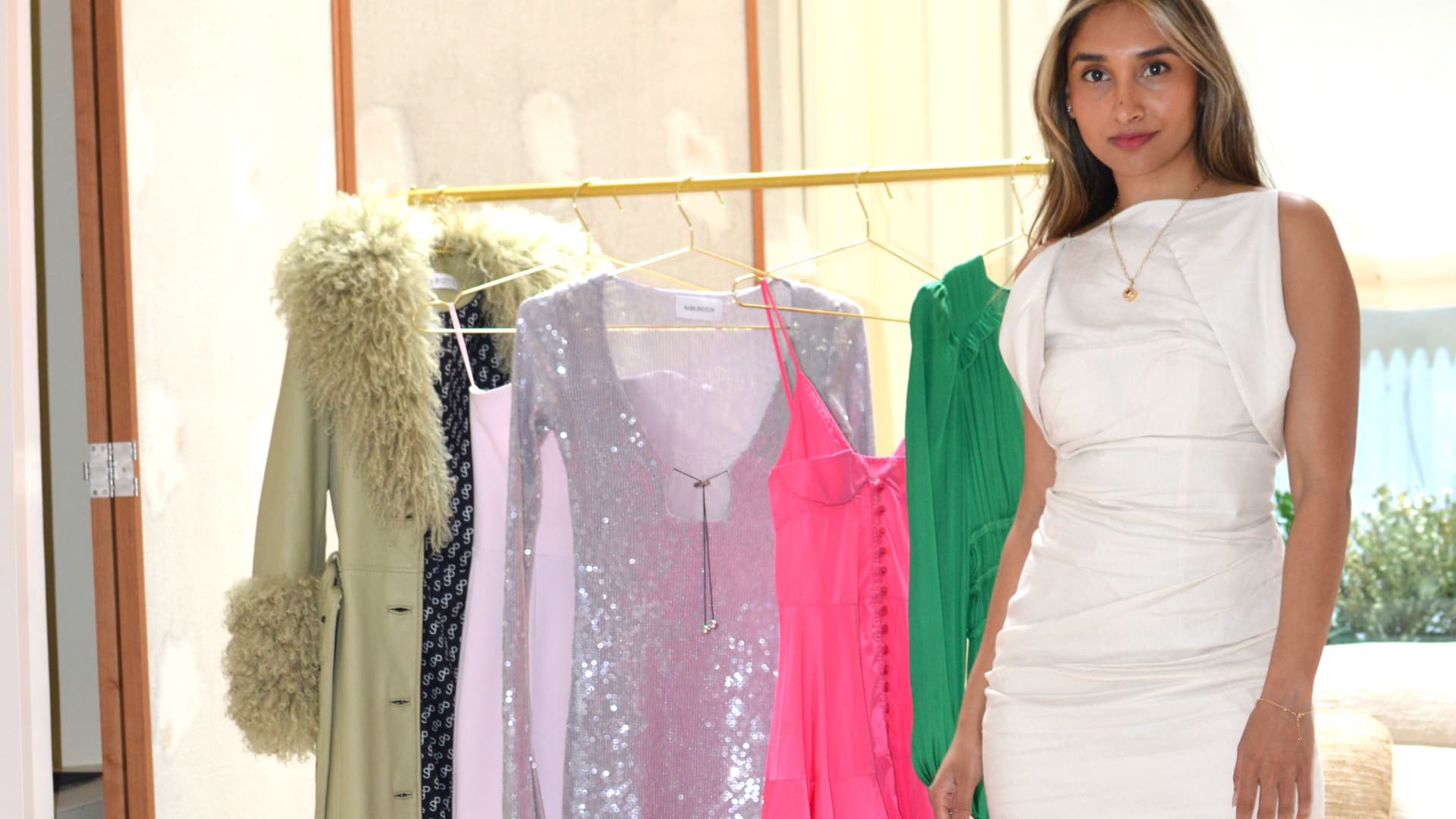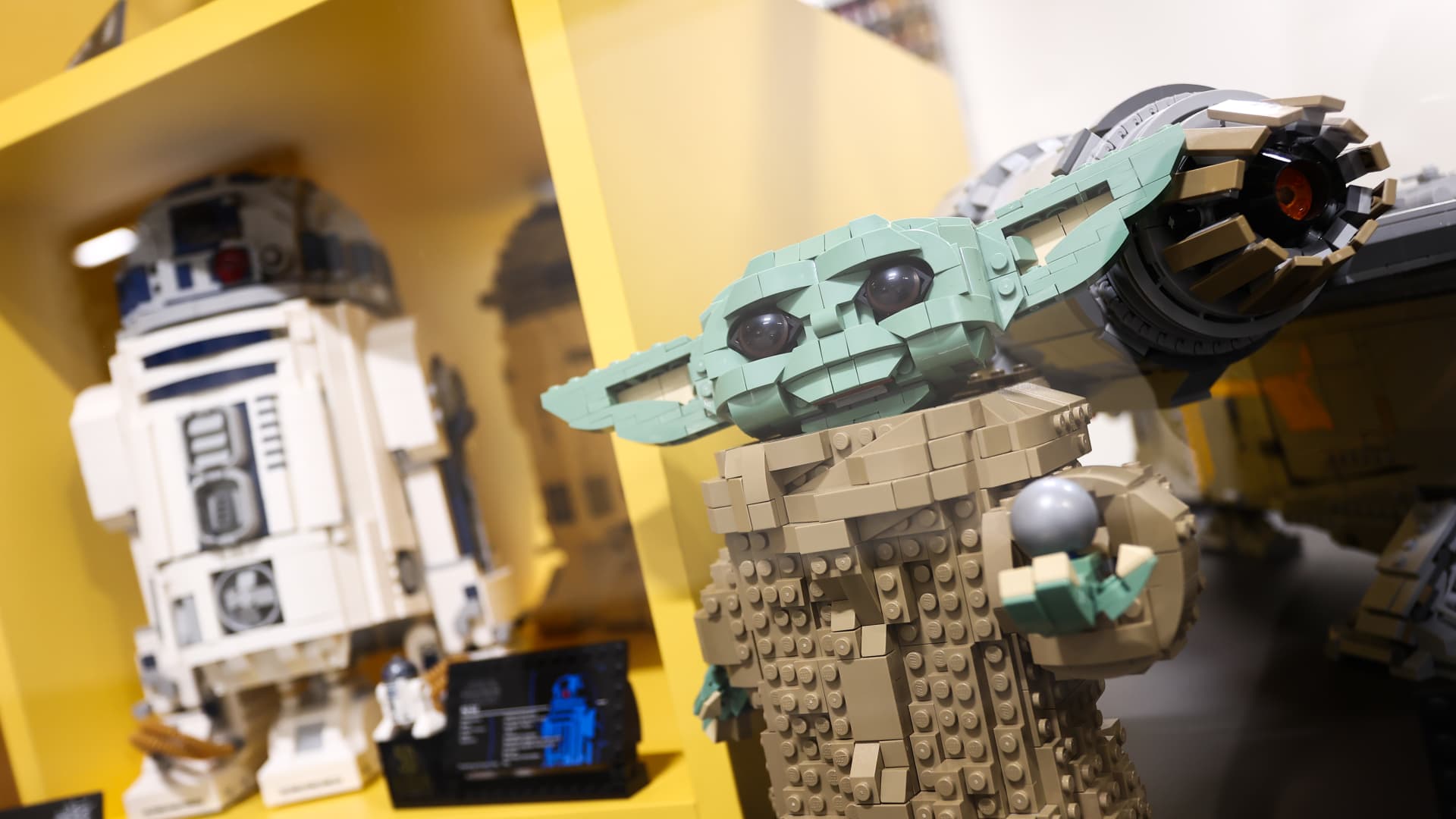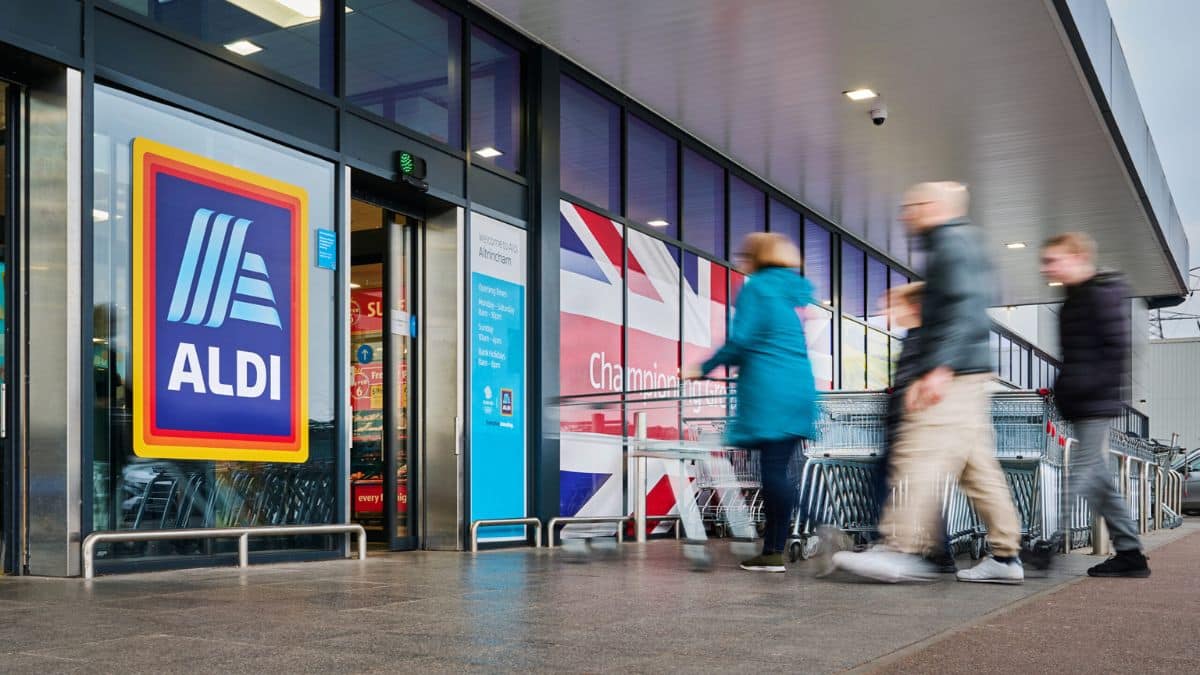
By Rotation, a U.K.-based clothing rental app, hopes to eliminate the need for fast fashion by making peer-to-peer clothing rental mainstream in the United States.
The startup expanded to the United States in May. By Rotation aims to grow usage in New York City this year before expanding to two other major U.S. cities next year.
By Rotation may sound like another rental service such as Rent the Runway, Armoire or Nuuly, but its founder and CEO Eshita Kabra-Davies is quick to point out that its peer-to-peer structure more closely resembles sharing-economy companies such as Airbnb and Uber.
By Rotation has taken a social media-style approach to building its community of lenders and renters by encouraging dialogue and giving users the option of receiving notifications when their favorite lenders list new items.
Individual users decide if they are willing to ship their items to users in other states. Some will offer only hyperlocal pickup rentals.
“The vision is really to be able to walk three streets down and pick up a rental, even last minute, because you have a few lenders in your neighborhood that are the same size as you, and we’ve already seen that happen in London,” Kabra-Davies said.
By Rotation founder & CEO Eshita Kabra-Davies
Source: By Rotation
The digital fashion rental market is expected to more than double in value from $1.3 billion in 2021 to $2.8 billion by 2030, according to data from Verified Market Research. Meanwhile, online resale is expected to reach $38 billion by 2027, according to ThredUp’s 2023 Resale Report.
Despite the expected growth, online fashion rental and resale has proven to be a difficult business, especially on Wall Street. The challenges have come partly because many in the space hold a lot of inventory and spend a lot of money to do so.
Shares of Rent the Runway, ThredUp and The RealReal are all down about 90% since the companies went public. All three companies have yet to become profitable.
By Rotation does not own a single item listed on its platform, making it a standout among the other major rental and resale players in the U.S. Instead, the inventory and listings come from the people using the app. Kabra-Davies describes it as a “very cost-efficient business model” that is “completely different to what the incumbent players are doing in the U.S.”
“No one is doing what we’re doing,” according to Kabra-Davies. “We don’t need to sell. We don’t need to tell people, like, please list your items, we will give you money for it; nor do we need to buy any items to build up that supply.”
In the U.K., By Rotation has more than 330,000 registered users with more than 68,000 listings. U.S. users have already listed more than 1,800 items across at least 15 states, according to Kabra-Davies.
The growth is happening organically, she said. The startup plans to start marketing in the U.S. this summer.
As the app grows, the startup is taking steps to ensure renters are trustworthy and lenders’ items are protected from damage. For example, a new user cannot rent an item that has a retail value above $1,000 through the app until they have completed several other lower-priced rentals and have been reviewed and rated for those rentals.
By Rotation uses smart pricing to help lenders determine listing fees. It recommends that each item’s daily rental fee be about 3%-5% of the item’s retail value, Kabra-Davies said.
By Rotation has not publicly shared its valuation, but it is actively seeking new investors for its third round of funding. The company raised $3.8 million in prior rounds, according to Kabra-Davies.
Despite being early in its fundraising, the company is on track to be profitable by spring 2025, according to Kabra-Davies.
Randi Wood, a renter from the Los Angeles area who is using By Rotation to lend out items from her small business, Entre Nous Showroom, recently rented a dress from By Rotation for a trip to Mexico. She described her experience as “really great” and said she appreciates how the user-run app drives interactions.
“The person that I was renting the dress from, she was very communicative, and it was like, right away, we were having a back-and-forth conversation,” Wood said.
‘Racist and broken’ system
The desire to create something different led Kabra-Davies toward her business in the first place. The idea for By Rotation first came to her in late 2018, while she was planning her honeymoon to Rajasthan, the state in northern India where she was born and from where she emigrated.
“I wanted to wear nice clothes on my holiday and I thought about renting but there was no sort of digital fashion rental player here in the U.K. or even Europe,” she said. “I started thinking about how I actually just wanted to reach out to all these women that we see on social media, who seem to wear one outfit once and never repeat them ever again.”
Kabra-Davies admits the concept of reaching out to someone unsolicited to borrow their clothes is a bit weird, so she did what many people do. She purchased some new outfits to wear while on vacation.
But those outfits took on a new meaning once she arrived in India a few months later.
“There was a lot of textile waste. And I just couldn’t help but feel that I was probably part of this problem. I had bought new clothes for this holiday, and I wasn’t sure that I loved what I was wearing,” she said.
Kabra-Davies was deeply concerned about how one of her passions was hurting people in the country where she was born. In fact, a new report from the European Environment Agency found that 90% of used clothes and textile waste from Europe ends up in Africa and Asia.
“It just kind of felt racist and broken,” she said. “I was investing in all these nice clothes. It was actually very problematic to the entire world in terms of climate crisis.”
Shortly after returning from her trip, while still working in investor relations at Marathon Asset Management in London, she decided she wanted to merge her corporate business experience with her lifelong love of fashion and her newfound concerns about the unintended consequences of fast fashion. So she began By Rotation as a side hustle.
The app officially launched in the U.K. in October 2019, about six months after By Rotation was incorporated, and Kabra-Davies transitioned to running her new company full-time.
A lean business model
As By Rotation moves into the U.S. market, Kabra-Davies hopes the low-cost business model can give it more room to grow — and give the startup an edge over its established competitors.
Martha Petrocheilos, a lender based in New York, said she uses By Rotation because it has “the latest and greatest of fashion.” In the past, she said, she has tried Rent the Runway but found that it had “really old inventory,” which she attributes to the company “[holding] inventory as opposed to individual lenders.”
The lack of inventory also makes By Rotation more sustainable and helps prevent the apparel from ending up in landfills.
Esther Gross holds one of her dresses listed to rent on By Rotation.
Source: Esther Gross
Esther Gross is still setting up her By Rotation closet in New York but has experience using the app from when she previously lived in the U.K. She compares renting out items from her wardrobe to “a new investment asset class.”
Gross started a spreadsheet to keep track of the retail cost and rental revenue of each item in her digital closet. “There were four items that I made the full price back on in the U.K., and then there was another seven that I made over 50% of the price back,” she said.
Over time this revenue became her shopping budget, and she “was never buying more than what I was making on By Rotation.”
It’s By Rotation’s lean business model that is helping attract attention from competitors.
The startup has “essentially no cost of acquisition,” said Kabra-Davies, who also said she’s been approached by at least two public companies in the rental and resale space.
One of the companies has “looked at our app and also our documents,” she said. Kabra-Davies has met with the other at least once.
When asked if she was open to selling her company, she said, “There’s a price for everything, but I’d love to see the ticker ‘BYRO.'”







